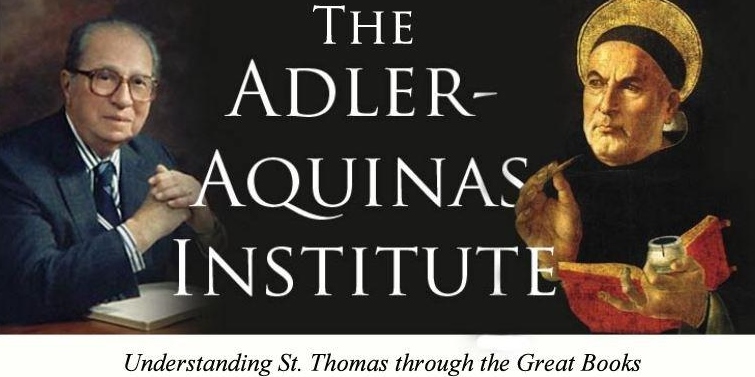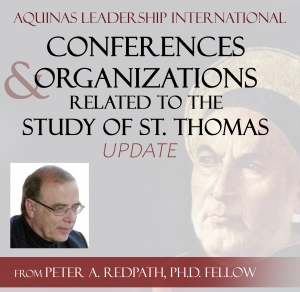THE HISTORY OF THE ADLER-AQUINAS INSTITUTE
 The Adler-Aquinas Institute represents the culmination of many educational reform efforts that began as far back as the 1930s and 1940s when Dr. Mortimer J. Adler wrote various essays some of which were later included in Reforming Education: The Opening of the American Mind (NY: MacMillan Pub. Co., 1989; 320 pp.) and books about educational reform. Dr. Adler’s prognostications in these works accurately identified intellectual errors that were gradually destroying American education, at every level. Those reforming education essays and Alder’s later Paideia Proposals inspired some educators to strive to implement Dr. Adler’s education reform proposals. The Paideia Program seeks to establish a course of study that is general, not specialized; liberal, not vocational; humanistic, not technical. Only in this way can it fulfill the meaning of the words “paideia” and “humanities,” which signify the general learning that every human being should possess.
The Adler-Aquinas Institute represents the culmination of many educational reform efforts that began as far back as the 1930s and 1940s when Dr. Mortimer J. Adler wrote various essays some of which were later included in Reforming Education: The Opening of the American Mind (NY: MacMillan Pub. Co., 1989; 320 pp.) and books about educational reform. Dr. Adler’s prognostications in these works accurately identified intellectual errors that were gradually destroying American education, at every level. Those reforming education essays and Alder’s later Paideia Proposals inspired some educators to strive to implement Dr. Adler’s education reform proposals. The Paideia Program seeks to establish a course of study that is general, not specialized; liberal, not vocational; humanistic, not technical. Only in this way can it fulfill the meaning of the words “paideia” and “humanities,” which signify the general learning that every human being should possess.
Begun with the first 30 students in A.D. 2000, the Great Books Academy (and its Catholic counterpart, the Angelicum Academy), have since introduced thousands of students in over 40 countries to their curriculum (based largely on Dr. Adler’s advice and his Paideia proposals) developed to lead up to the four-year Great Books Program, which students can start as early as 9th grade (age 14, and up: the oldest student was 87). To prepare students for reading the Great Books – since many are not otherwise prepared – the k-8 program utilizes a “Good Books” reading list of approximately 140 children’s classics, based on a larger list prepared for that purpose by noted educator Dr. John Senior, one of the three founders of the Integrated Humanities Program at the University of Kansas, Lawrence, and online “Socratic classes” as recommended by Dr. Adler for grades 3-8.
As of 2011-2012, over 200 students were enrolled in the four-year, online Great Books program. Students read a great book, or major excerpt therefrom, each week (15 per semester) and meet online for a two-hour weekly discussion of the book, moderated by two experienced tutors. The Academies have also published 2,500 pages of Study Guides for the four-year program. Over the four years of the program the students are exposed to 120 great works of Western civilization–the “backbone of a liberal education” as Dr. Adler called it. Numerous colleges and universities accept these Great Books courses for either full (6 credits per completed semester: 48 credit hours total for the four-year program) or partial credit, as do many of the hundreds of member institutions of higher learning of the American Council for Education (ACE CREDIT) network.
Almost simultaneous with the founding of the Great Books and Angelicum Academies over a decade ago, founding members of the Adler-Aquinas Institute in the United States started to focus attention on collaborating with members of the Department of Philosophy of Culture at the Pope John Paul II Catholic University of Lublin (KUL), Poland to develop a Thomistic counter-culture adequate to address the metaphysical and moral problems of our age. Many AAI Fellows (including Fr. Joseph Fessio, Peter Redpath, Curtis Hancock, Thomas Michaud, Patrick Carmack, Stephen Bertucci, Robert Delfino, Scott Bloch, and James Kelly) have visited Poland and attended conferences and given lectures in Poland, cementing this relationship. As the only non-communist philosophy faculty within the only Catholic university behind the Iron Curtain, several members of the KUL faculty were students of Fr. Karol Józef Wojtyła (later Pope John Paul II) when he taught ethics at KUL, including the AAI Fellow, Dr. Piotr Jaroszynski, whom the same Pope personally thanked for his book on ethics.
Because the AAI founding members thought that a need existed for students entering the college level of the program to add a specifically Catholic approach to theology to the more generalist Great Books courses they take, founding AAI fellows sought the help of Fr. Joseph Fessio (AAI Chancellor and founder of Ignatius Press, English-language publisher to Pope Benedict XVI) to design such a curriculum.
